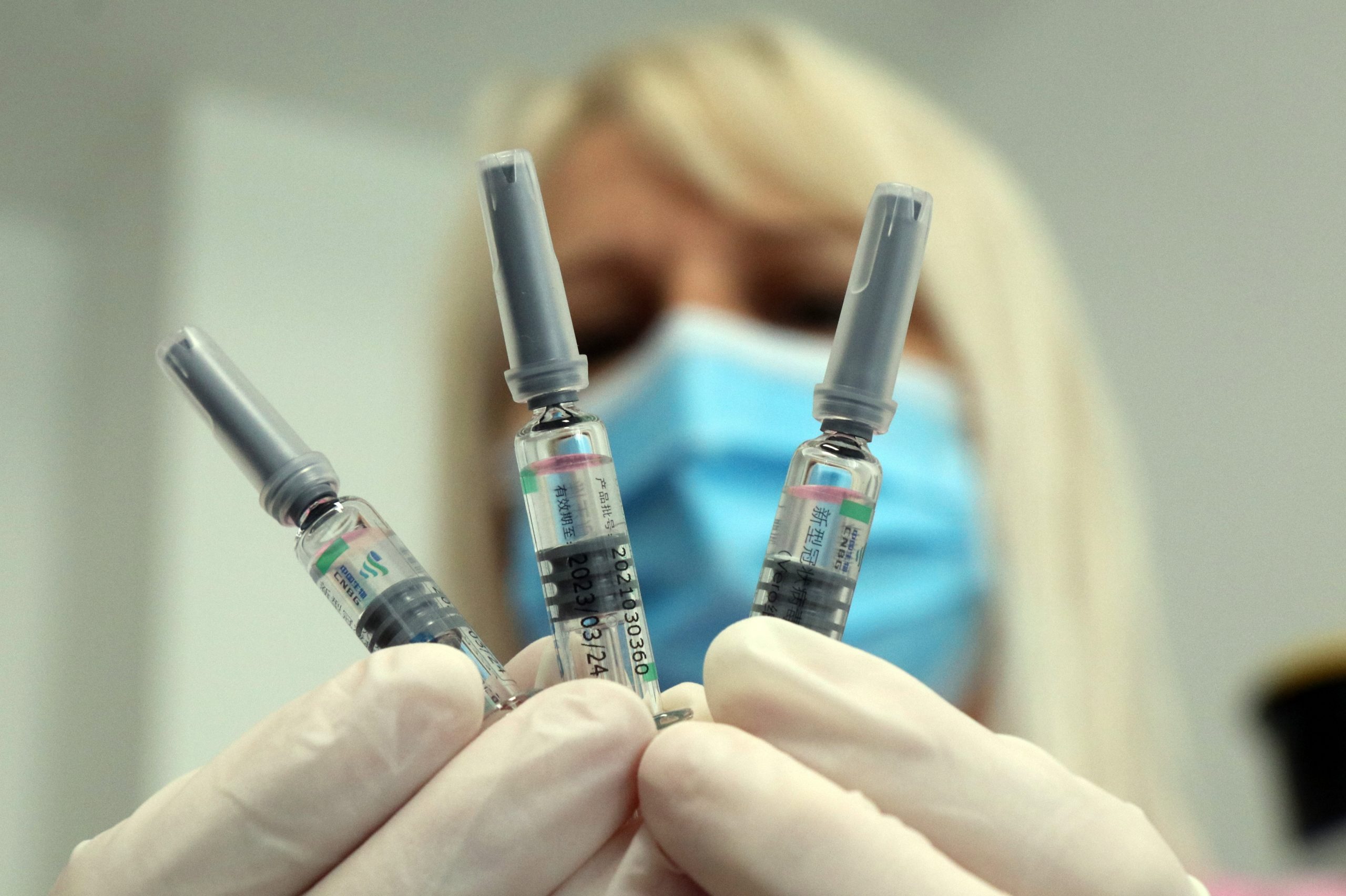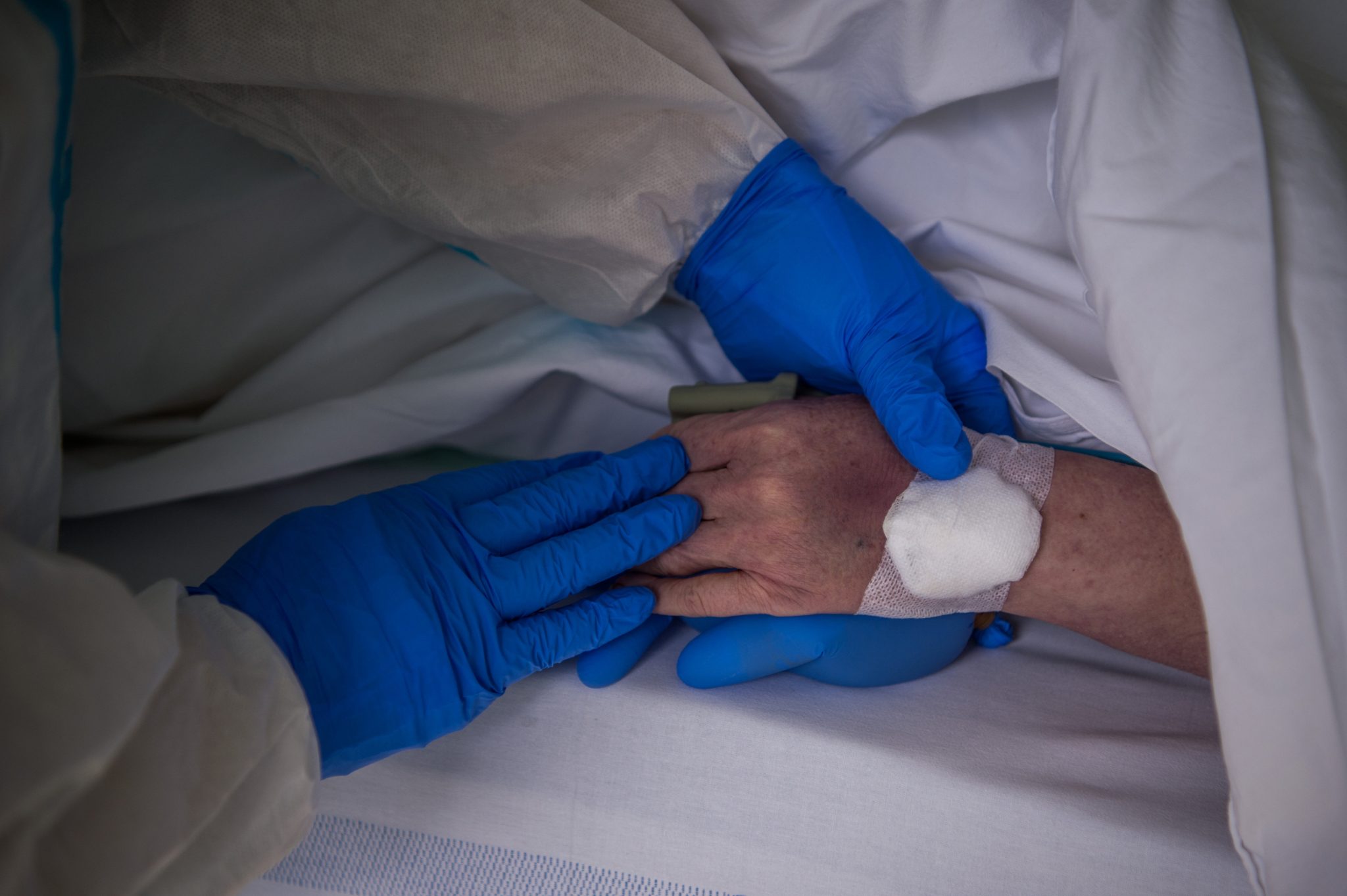
Among the 303 individuals who were found to have inadequate antibody levels in Budapest's antibody test, 294 were vaccinated with Sinopharm.Continue reading

A man’s mother and sister from Nagykanizsa both died from the coronavirus, and he has denounced the Hungarian government and Prime Minister Viktor Orbán for the death of his mother. He believes that his mother was not properly protected and that the circumstances of his sister’s death were undignified.
The man believes it is doubtful that the Chinese vaccine provided real protection to the elderly. He bases his argument on documents obtained by Transparency International from the National Institute of Pharmacy and Food Health (OGYÉI).
He said his mother had been vaccinated with Sinopharm, so it was possible that she had not received any real protection against the infection from which she later died.
When she was given this Chinese vaccine, she was not in a legal position to choose any other vaccine, only and exclusively this one.”
He said it is “clear” that the government is responsible for all this, citing Orbán’s remarks on Kossuth Radio on September 18, 2020, when he said:
“By necessity, of course, all decisions must be taken by the government, and consequently the responsibility must also be borne by the government, and most of all by me, of course. I take this responsibility, of course, it is my job, I could say, it is why I get paid.”
The Prime Minister’s first two doses were Sinopharm as well, and he received Moderna as a third jab.
The man’s sister died from coronavirus in a hospital in Zalaegerszeg, but afterward, the institution did not allow him to say goodbye to her loved one. In addition, he was charged for the cost of dressing her, despite the fact that people who die from Covid are not dressed before they are released, but are simply put in a nylon bag. He is upset about the charge, not because of the amount of the expense, but because he feels it is an undignified procedure.
“My mother died of the coronavirus in the hospital in Nagykanizsa, where I was allowed to have a last look at her, even if only through a glass window, to say goodbye,” he explained. “In Zalaegerszeg, however, this was not possible: after I was informed that my sister had died, I went to the hospital, but by then I had been transferred to the pathology department, where I was not allowed to say goodbye. So I don’t know if the ashes I received were really hers or if they had been exchanged. There have been exchanges of bodies in several places in the country, so I can’t really be sure.”
The man also wrote to the St. Rafael Hospital, whose director-general, Beata Gasztonyi, said that the special disinfection procedure for Covid patients in the pathology department would place a particularly heavy burden on the staff and that it was no longer possible to say goodbye to relatives of the deceased. In contrast, the Director-General said that the Covid intensive care unit would have been the place for a final farewell. As for the possible exchange of corpses, Beáta Gasztonyi said that this could not happen because of strict internal protocol, which has several stages. As for the fee for the treatment of the deceased, she said that the relevant legislation does not explicitly state that the hospital can ask for financial compensation for this, but does not rule out the possibility.
Terminally ill patients are not subject to the visiting ban but must be allowed access to relatives,”
said Beatrix Vissy, an expert at the Society for Civil Liberties’ Private Sector Project.
“When it becomes clear that the process is irreversible, they should be informed. Of course, the patient may die in the meantime, or even be transferred to the pathology department, but the National Center for Public Health recommends that the possibility of a farewell should be provided, a constitutional right deriving from the right to a funeral. In fact, according to the 2004 recommendation of the Commissioner for Fundamental Rights, all hospitals should provide a memorial room, a so-called ‘funeral room,’ but this is often ignored.
There are indeed strict standards for those who have died from Covid, but this should not be a reason for not allowing a memorial service, nor should it be a reason for placing a disproportionate burden on certain staff.”
Featured image: illustration by Zoltán Balogh/MTI